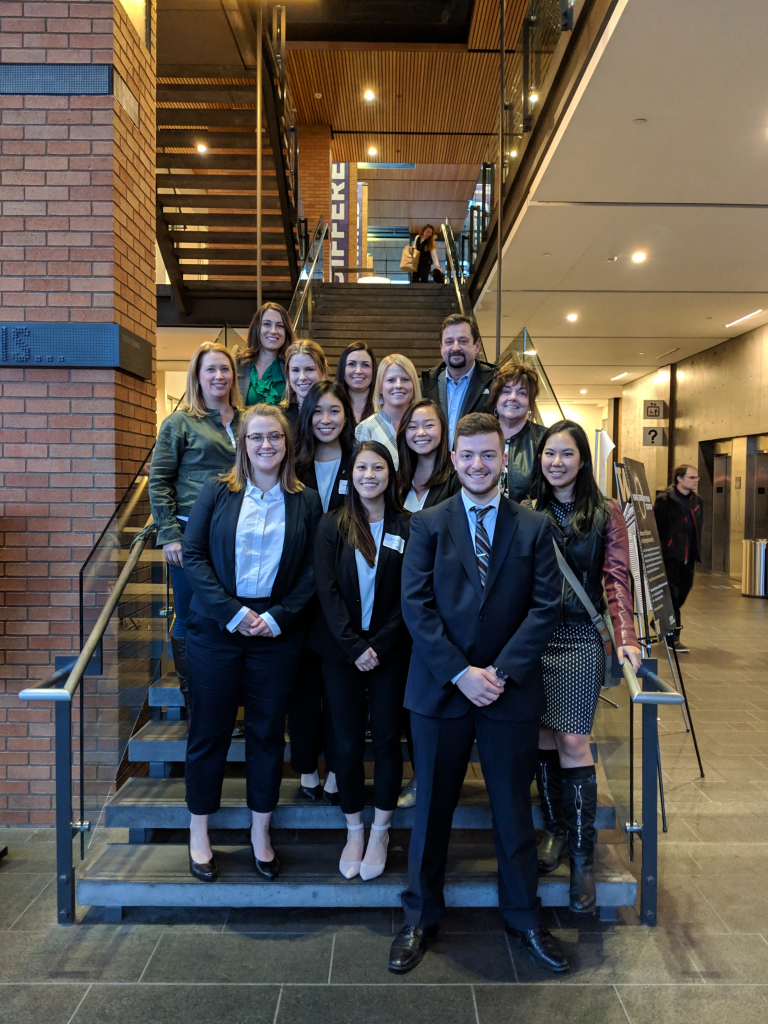A Competition by Nature
Each year, around 700 graduating seniors solve real-world problems, and identify opportunities and strategic positioning for local Pacific Northwest companies as part of the Foster Strategy Development Competition.
The capstone competition of the MGMT 430 Business Strategy course emulates team projects students will face during their careers in real-time. Since 2012, the Foster School of Business has partnered with companies such as Microsoft, Amazon, Starbucks, Zulilly, Accenture and Alaska Airlines, to name a few.
By allowing students to work on real, meaningful case studies, they are able to provide companies with valuable insights, analyses and recommendations.
“The companies have often asked for teams to present to their upper managing following the competition,” says Rick McPherson, the case competition faculty coordinator.
The competition 
Students work in teams of four to five over the course of a month to analyze the situation, create alternatives and make recommendations. Students must apply what they have learned in the Business Strategy course and throughout their undergraduate career to provide a robust and integrated solution.
In the weeks leading up to the competition, students attend a Question and Answer session with leaders from the subject company and receive presentation coaching from Accenture consultants.
On competition day, each team has 12 minutes to present, followed by 8 minutes of Q&A, before a panel of judges from the subject company as well as alumni and other business professionals.
Teams are scored on the quality of their research, analysis, justified recommendation and financial analysis in addition to their presentation skills and answering of questions. Students receive feedback from the judges immediately following their presentations.
“The feedback that they get from the Judges is considered one of the most valuable outcomes,” McPherson says. “Students discuss this experience in resumes, job interviews and tell us it prepares them well to be successful on project and task force teams.”
The winning teams advance to the semi-final and final rounds, where they present to a panel of judges all from the subject company’s upper management.
Cold is the new hot
In one quarter, students cracked a case developed with Starbucks Coffee Company and identified opportunities and strategic positioning to grow Starbucks’ market share in the blended frozen drinks category.
With the demand for cold beverage increasing, Starbucks was faced with a question: should they consider aggressively expanding their existing frozen blended beverages or not?
Students were tasked with providing a recommendation, the associated risks and rewards, and identifying whether Starbucks should pursue adding cold beverage offerings or explore other options for generating revenues.
The top two teams identified the actions and target customers, provided a financial analysis and justifications, and detailed piloting and implementation of two dramatically different plans. One team recommended high-end milkshakes and slushy drinks, while the other recommended pursuing kombucha-based drinks for the health benefits.
Both teams were asked to present to Starbucks Product Management at their global headquarters in Seattle.
